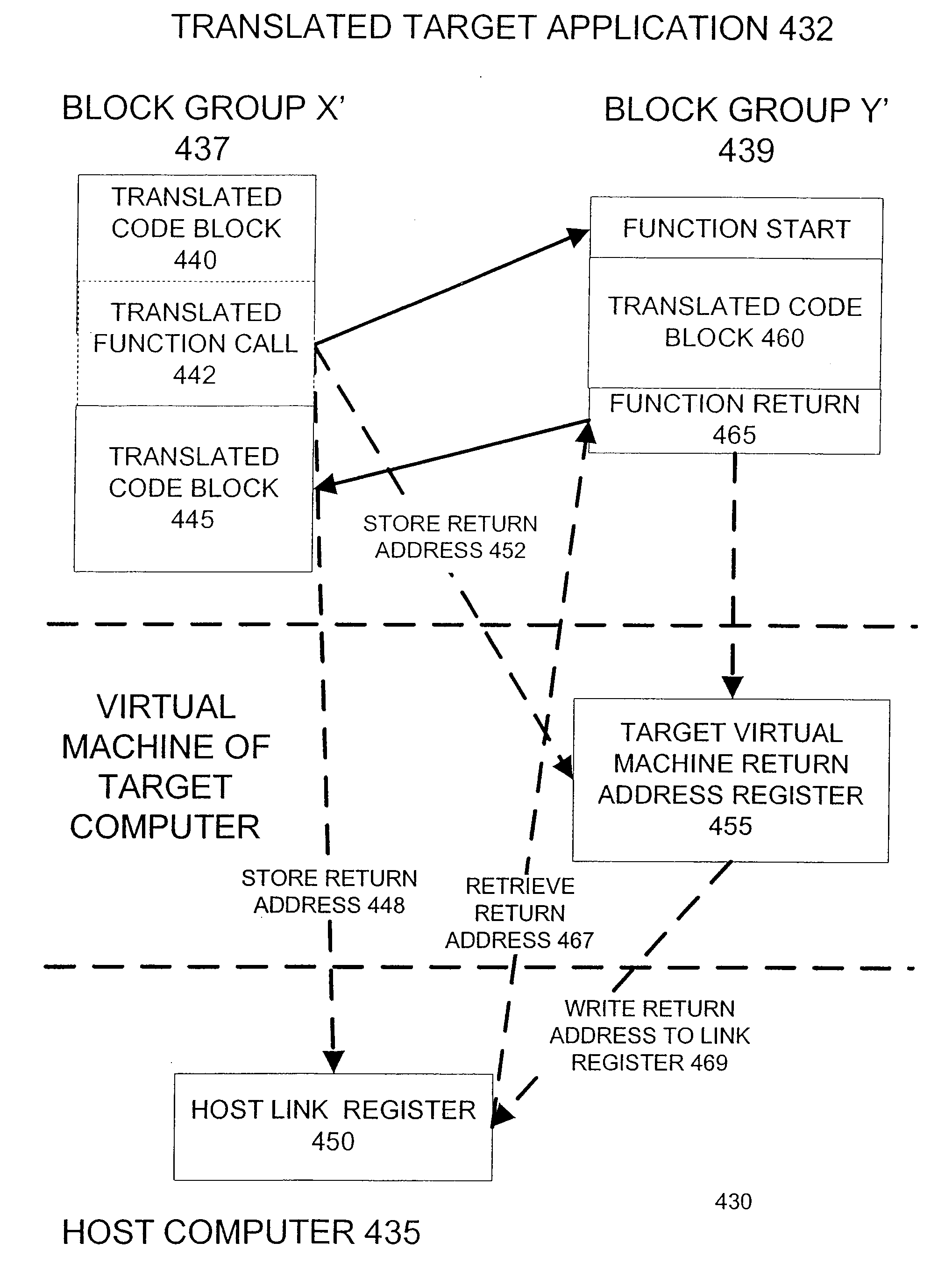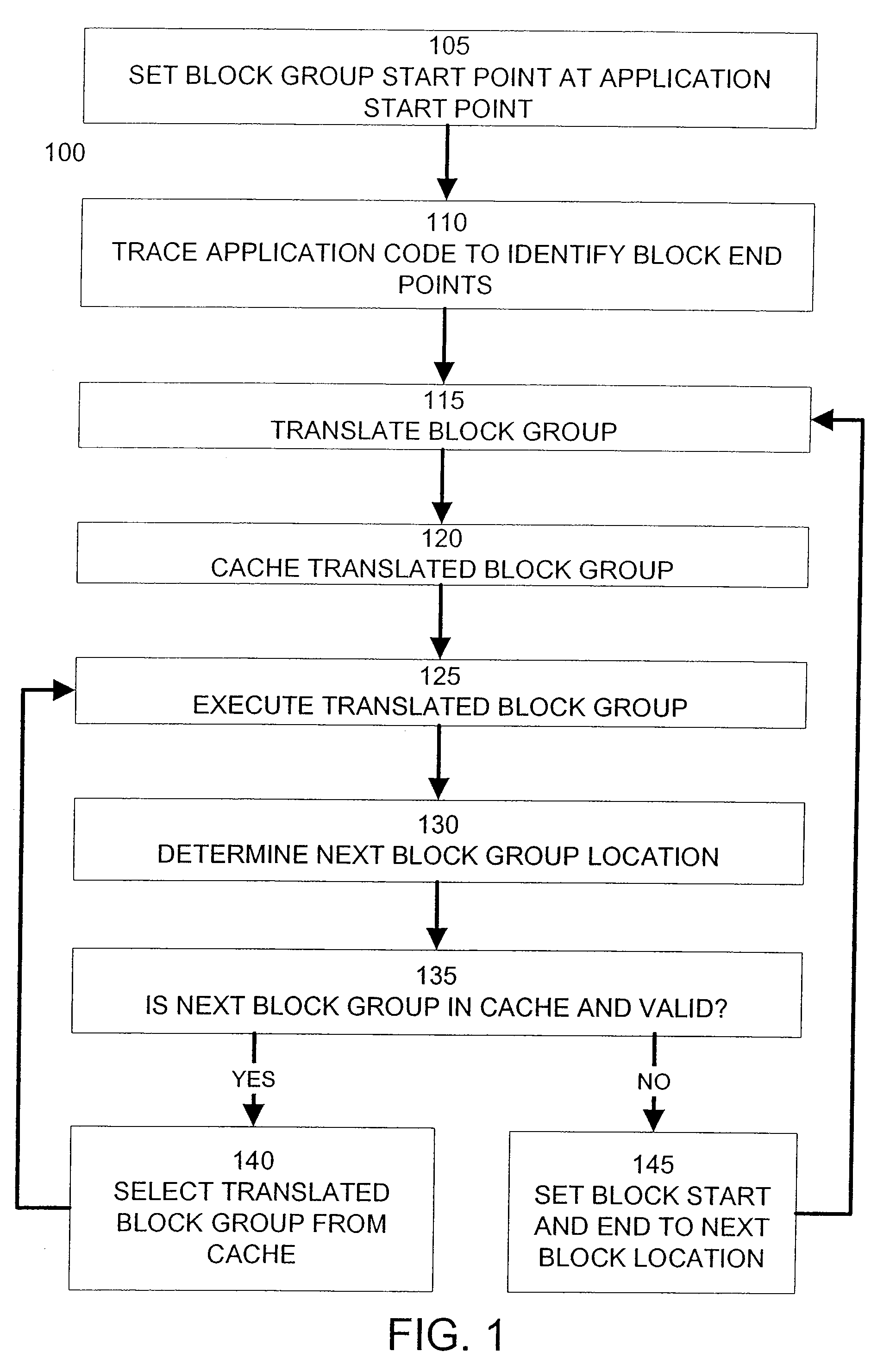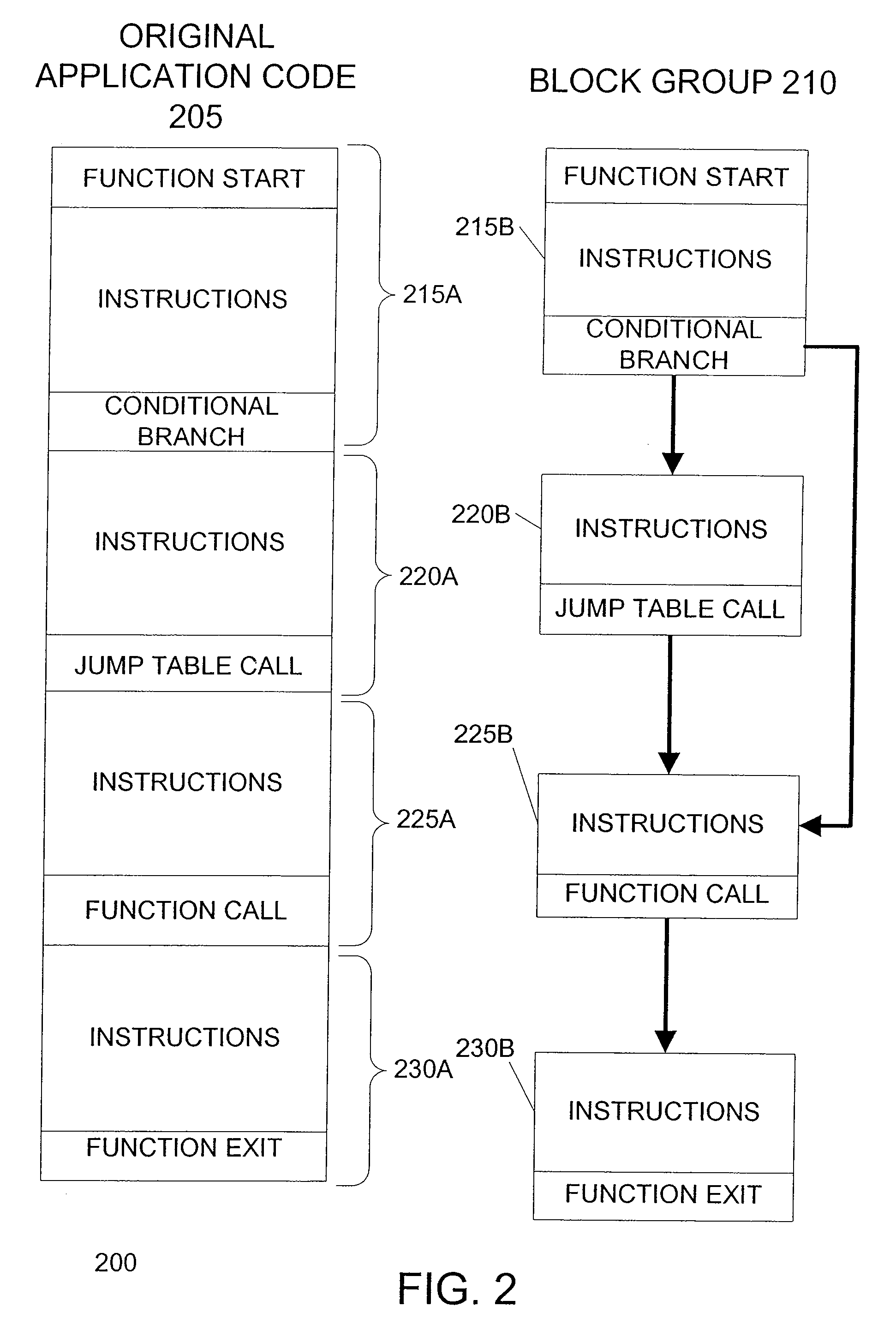Code translation and pipeline optimization
a pipeline optimization and code translation technology, applied in the field of emulator software, can solve the problems of requiring orders of magnitude more processing performance, time-consuming and expensive, and often too slow for software interpreters to be used, and achieve the effect of improving performan
- Summary
- Abstract
- Description
- Claims
- Application Information
AI Technical Summary
Benefits of technology
Problems solved by technology
Method used
Image
Examples
Embodiment Construction
[0024]FIG. 1 illustrates a method 100 of translating and executing application code in an emulator in accordance with one embodiment of the present invention. In this embodiment, the emulator partitions the application code into blocks of related instructions. Groups of related blocks, such as blocks from the same function, are chained together to form block groups. Each block group is translated or recompiled to a format capable of execution by the host computer system. Method 100 begins at step 105, which sets the start of a block of application code to be translated to the beginning of the application code or any other application entry point, such as the beginning of a function.
[0025]Step 110 traces forward through the application code from the block start point to identify one or more block end points. In an embodiment, block end points are indicated by application code instructions that changes the control flow of the application, such as a branch instruction, a function call,...
PUM
 Login to View More
Login to View More Abstract
Description
Claims
Application Information
 Login to View More
Login to View More - R&D
- Intellectual Property
- Life Sciences
- Materials
- Tech Scout
- Unparalleled Data Quality
- Higher Quality Content
- 60% Fewer Hallucinations
Browse by: Latest US Patents, China's latest patents, Technical Efficacy Thesaurus, Application Domain, Technology Topic, Popular Technical Reports.
© 2025 PatSnap. All rights reserved.Legal|Privacy policy|Modern Slavery Act Transparency Statement|Sitemap|About US| Contact US: help@patsnap.com



